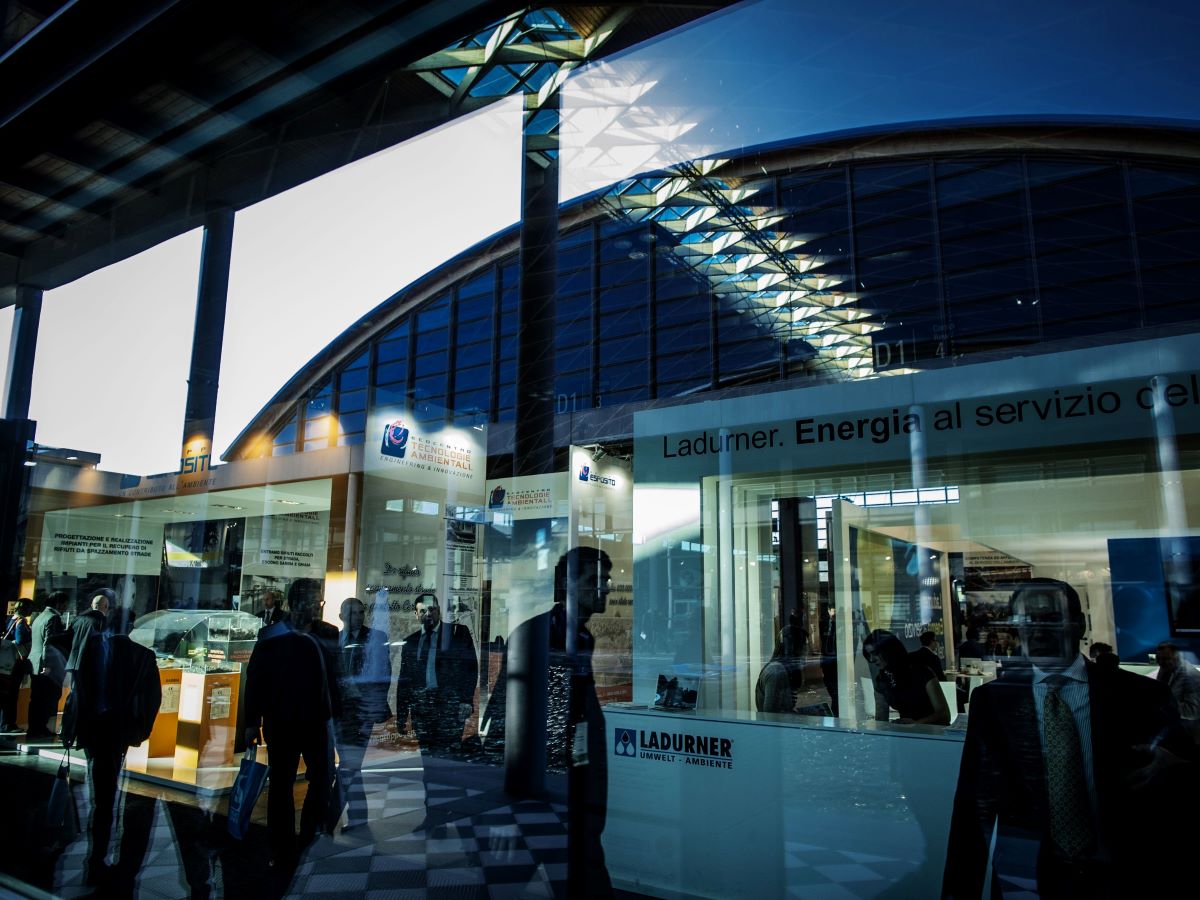The purpose of travel is not just leisure and exploration. People also move around for business and work, and the business travel sector took a heavy hit due to the Covid-19 pandemic. After months of enforced closure, operators have adopted very strict measures to ensure safe recovery for an industry that is central to many countries’ economies. With an eye, of course, to sustainability.
Tourism is more than just holiday-making. A large proportion of travel happens for business, work, and training. Within the business travel sector, convention and trade fair tourism play a prominent role, not just for those directly involved (exhibitors, speakers, professionals) but also due to the revenue it can create for the territory. A single exhibition week – when well-integrated in the relevant circuit and having, perhaps, an internationally recognised name – can determine a season’s success for a restaurateur or hotelier, create jobs, and offer valuable opportunities to internationalise local economies. To say nothing of its primary function as a networking and experience-exchange platform, as a chosen venue to strike trade deals, find collaborators, and set up partnerships to drive innovation. Giovanni Laezza, President of AEFI (the Italian Exhibition and Trade Fair Association), notes that all these functions cannot be fulfilled in a digital space.
Trade Fair Tourism in Numbers
According to data from UFI (the Global Association of the Exhibition Industry), trade fair events across the world involve 300 million visitors and 4.5 million businesses every year. In 2019, exhibitors and visitors spent 116 billion euro and the sector created 3.2 million jobs. Within this context, at least until last year, Italy placed second in Europe and fourth globally, with some 1,000 events per year, 200,000 exhibitors involved, 20 million visitors, and a turnover worth 60 billion euro.
The Covid-19 emergency, however, has severely affected the sector. According to a report released by UFI in July 2020, in the first half of the year the exhibition industry suffered a 60% contraction. Extending projections to the end of the year, it is expected that revenues in Europe and North America will be less than half (44%) of those in 2019, while predictions for the rest of the world are even worse. Finally, in terms of lost income, the figures are 158 billion euro globally and 52 billion euro for Europe alone.
Restarting Safely
While moving events to digital platforms has been, and in many cases still is, a necessary solution, plans are in motion to resume in-person operations where possible. Starting, of course, with safety measures. Based on general World Health Organisation guidelines for minimising Coronavirus contagion, organisers of the main international trade fair events rolled up their sleeves and drafted meticulous health security protocols. The one drawn up by EMECA (the European Major Exhibition Centres Association) is especially detailed, providing not only for visitor management within trade fair spaces but also for pre- and post-event practices: bookings, travel, assembly and disassembly, staff training.
Based on these directives and the documents drafted by UFI, AEFI, and FederCongressi, the Italian Exhibition Group (IEG) – a company based in Rimini and Vicenza that manages trade fair events within and outside Italy – has devised its health safety protocol. “We worked on this plan with a will to give a complete and reliable response to the public,” stated IEG CEO Corrado Peraboni. “Now more than ever, they ask to be able to rely on exhibitions and conventions in the recovery process”. Thanks to the meticulous rules and plans set out in IEG’s #SafeBusiness protocol, Italy’s two most important exhibitions dedicated to circular economy and sustainability - Ecomondo and Key Energy - will be able to take place in November, at the exhibition centre in Rimini.
From Admission Tickets to Coffee, via Thermal Scanners
Distancing, hygiene, tracking potential outbreaks: the basic rules are clear, but not easy to enforce. Especially when large numbers of people have to be managed, in situations designed to be crowded. IEG’s #SafeBusiness protocol harnesses the power of technology and location design, without forgetting the importance of the human element, and thus of staff training.
The thorough organisational protocol has over 50 components, starting with the moment a ticket is purchased. The first rule aims to avoid overcrowding. To avoid entrance queues, tickets can only be booked online, with visitor numbers planned based on pavilion capacity and digital access cards.
Transportation has also been considered: shuttles between the airport, hotels, and the exhibition centre will be sanitised and equipped with hand sanitiser. Masks will be compulsory and the number of passengers will be fixed in advance. To promote sustainable mobility, agreements have been made with bike-sharing and electric scooter companies in coordination with hotels and the region. Opening hours will be extended to help distribute visitor flows throughout the day, and the number of attendees will be monitored via centralised digital tracking. There will be a thermal scanner at every entrance to check people’s temperature and hand sanitizer dispensers will be distributed throughout the exhibition centre. Face masks will be compulsory and distribution points will be available for those who haven’t brought their own. IEG staff will wear transparent masks to aid communication with the hearing impaired.
With regards to food and drink provisions, restaurants and catering services will undergo rigorous checks, starting with temperature checks for staff, who will also have to wear gloves, masks, and aprons. To avoid contact with surfaces and handling money as much as possible, digital menus and apps for orders and payment will be available. Food and coffee will be served in single-portion, bio-based, and compostable trays and cups. Food courts will be mostly outdoors, and will always have barriers between tables.
Distancing will be the prime directive dictating how spaces are designed: very open rooms with few furnishings made of easily sanitisable materials (goodbye then to velveteen and typical convention carpeting). Sanitisation of all areas will be planned on a constant cycle, and air conditioning filters (a new concern due to the possibility of airborne transmission) will be sanitised and controlled.
The exhibition’s employees will receive training on a crisis management protocol to be applied if suspected contagion cases are identified. To further protect collaborators, IEG has decided to offer everyone testing on a voluntary basis.
Finally, for those who will not be able to go, a large amount of digital and multimedia material will be made available. For conventions and events, thanks to experience gathered during lockdown, organisers have set up complete live streaming coverage.
Ecomondo and Key Energy
The 24th edition of Ecomondo – the international exhibition for circular economy innovation – will take place between 3rd and 6th November 2020 at Rimini’s fair district. The event is set to happen alongside Key Energy’s “Energy Transition Hub”, the fair for energy efficiency and renewable energy solutions and applications.
This year, Ecomondo will host more than one-hundred conferences, seminars, and workshops on circular economy best practices for different sectors: from construction to the automotive industry, from packaging to electronics and the food sector. Notably, this edition will focus on several themes linked to the Covid-19 emergency: from waste treatment to cleaning up contaminated sites, from the integrated water cycle during a pandemic to the evaluation of health impacts, from atmospheric pollution to indoor air quality. Other topics include bio-waste, separate collection and recycling, bio-construction and forest bioeconomy, digitalisation for water infrastructure management, and the reuse of coastal sediments.



